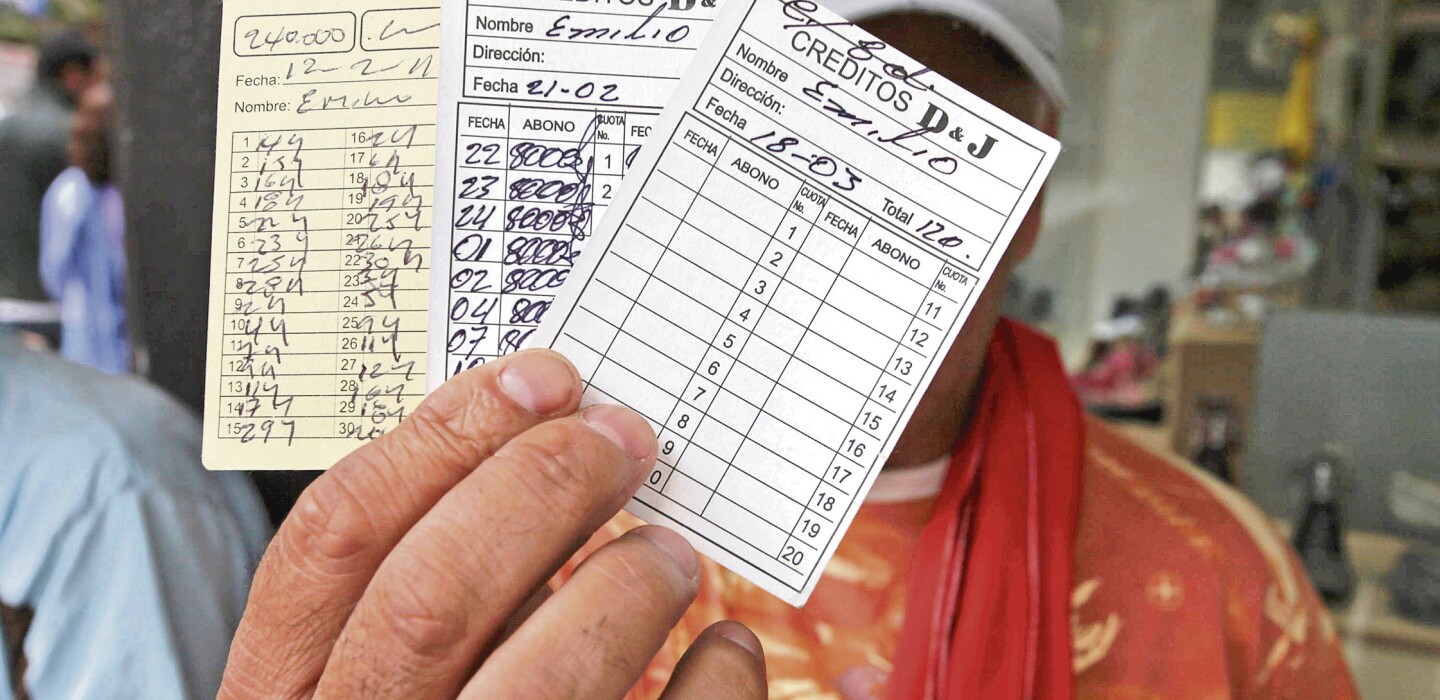By Pablo Mendez
A business card is slipped under the door of a house on the outskirts of the department of Artigas. In it, on a white background with the printing of several $100 bills, and in black letters, it can be read: “Instant credits”. And below the friendly phrase: “Let us be part of your projects.” Then a phone number.
If the person who answers is called, it is Jorge, he is Colombian and after a respectful introduction he asks: “How much do you need?” In this case the answer is: $20,000. Then Jorge begins to explain what needs to be done to access the loan and how it is paid.
The money will be delivered “in cash” and $1,000 will begin to be paid the next day. This will be for 24 days. It is what is known as a “drop by drop” loan and is aimed especially at merchants.
It is a maneuver extended throughout Latin America. A report published in 2016 by the BBC, for example, indicated that there were victims of these in Argentina, Bolivia, Chile, Colombia, Guatemala, Honduras and Peru. Now there are also in Uruguay.
The telephone call is the starting point for those who access this type of credit, which does not have any regulation, and which are offered in various departments of the country, including Montevideo. Problems usually arise in the event that people fail to meet any of these quotas.
The lenders do not charge interest, but they pressure the debtors until they are forced to take out another loan with them to pay off the previous one. This generates a chain that is very difficult to cut.
Martín -who prefers not to give his real name for security reasons- set up a food cart in the Ayuí neighborhood, in Artigas. The card through which he found out about these credits was given to him by “a young Colombian or Dominican woman,” he says. She asked for only $10,000, but began to fall behind; then the visits, the calls and the pressures “were at all times”. He asked for more credits, but there are already more than a dozen and he can’t finish paying. The only way out he found was to put his cart up for sale so he could end the ordeal once and for all.
In the same apartment, Lucas (not his real name) had a similar experience with his laundry room, in the Pirata neighborhood. He asked for $3,000. They gave him the loan, but he also fell behind. In his case, he received a visit from three Colombians, who “squeezed” him, he says, to make him pay. The young man has already put his pressure washer up for sale.
None of them filed a complaint for fear of reprisals.
In the city of MeloHowever, the Police he did receive a 911 call from a woman who claimed that three men on a motorcycle had threatened her that they would rob her house after she could not pay one of these “drop by drop” loans.
According to sources from the Headquarters, when the Police arrived at the scene the men were no longer there and the woman -owner of a small business- refused to file a complaint. The victim explained that the men wanted to take home appliances to collect the debt.
In Artigas, Montevideo, Salto, Rivera and Tacuarembó the descriptions are repeated: Colombians, on Honda motorcycles, who leave cards and grant easily accessible loans, but complex to pay off due to the high interest rates and the frequency with which they must be disbursed money to pay the fees.
“With the photo of the ID and its location, we begin,” says Jorge, detailing almost with pride that there are no conditions to access the loan.
“(Clering) we don’t look, but sometimes we do look if you have worked with other Colombians and it has gone bad,” says the lender from the other end of the phone.
According to sources from the Montevideo investigation area, the Police are well aware of the actions of these gangs.
They make use of a collector -who always goes by the shops at the same time in search of their daily quota-, by women who work as “promoters” -they go to the places and realize the convenience of accessing these credits – and also by a group of people who are in charge of “squeezing” the defaulters.
In 2019 and in the department of tacuarembó the only investigation that allowed to prove the usury of one of these groups was carried out. The characteristics of these, according to the prosecutor who handled the case, Claudia Lette, have the “same characteristics” as those offered by Jorge.
These are credits, with interests that exceed the maximums established by the Central Bank of Uruguay.
The Effective Annual Rate (TCA) is 124.46% per year. In other words, this is the maximum interest that the law allows to apply to loans in Uruguay.
Along these lines, if an individual requests a loan for $20,000 to be repaid over 24 days, at a rate of $1,000 per day, they should not pay interest that exceeds $1,064.48.
The offer of the Colombian groups exceeds this figure, since they charge $4,000, that is, $2,936 more than what the regulations allow. With these figures, its annual interest rate is 1.968%.

:quality(75)/cloudfront-us-east-1.images.arcpublishing.com/elcomercio/Q2ECHR77D5AINGIVHZCL4VP4KA.jpg?resize=150%2C150&ssl=1)
